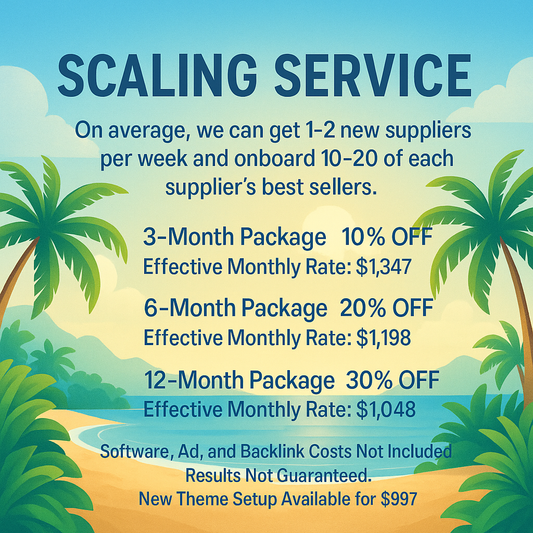
Best Free and Paid Keyword Research Tools

Finding the right keywords can make a big difference in online success. The best free and paid keyword research tools help users discover what people are searching for and how to reach them effectively. With so many options available, knowing which tools to choose can save time and improve results.
Whether someone is just starting a blog or managing a large website, using the right tools can boost their content strategy. Free tools offer solid features, while paid options provide deeper insights and advanced functionalities. This article will highlight the best choices to fit various needs and budgets.
By using these tools, anyone can find opportunities to improve their SEO and attract the right audience. Understanding keyword research can lead to better content development and increased traffic. The following sections will dive into the top tools available today.
Quick List: Best Keyword Research Tools
- Mangools / KWFinder
- Surfer SEO
- Ubersuggest
- Moz
- SEMRush
- Jaaxy
- Exploding Topics
- QuestionDB
- Serpstat
- AlsoAsked
Understanding Keyword Research
Keyword research is crucial for driving online traffic and improving search engine rankings. It helps identify the right terms and phrases that potential customers use when searching for products or services. This section highlights the key roles keywords play in SEO and ecommerce.
The Importance of Keywords in SEO
Keywords are the foundation of search engine optimization (SEO). They connect users with relevant content. When a website uses the right keywords, it can rank higher in search results. This ranking is vital for visibility and attracting organic traffic.
Effective keyword research involves finding words that potential customers use. This can lead to better click-through rates and more conversions. Tools like Google Keyword Planner help identify keyword trends. Understanding keyword intent is also important.
There are three types of keyword intent:
- Informational: Users seek information.
- Navigational: Users look for a specific site.
- Transactional: Users want to make a purchase.
Using the right keywords aligns content with user intent, boosting engagement.
Keyword Research and Ecommerce Success
In ecommerce, keyword research is even more significant. It helps sellers understand what customers are searching for. This knowledge allows them to optimize product listings and improve sales.
High ticket dropshipping, for instance, benefits from targeted keyword research. Identifying specific phrases used by customers can lead to successful marketing strategies.
For example, using long-tail keywords like "luxury watches for men" can attract buyers ready to purchase. Such keywords are often less competitive and easier to rank for. When ecommerce businesses focus on the right keywords, they can significantly increase their traffic and sales.
Differentiating Short-Tail and Long-Tail Keywords
Short-tail keywords are generally one or two words long. They have a broad search volume but can be very competitive. For example, a keyword like "shoes" will attract many searches but may not lead to targeted traffic.
Long-tail keywords, on the other hand, are longer and more specific. They usually consist of three or more words. For example, "best running shoes for flat feet" targets a specific audience looking for particular features.
Using a mix of both types can create a balanced keyword strategy. Short-tail keywords can increase visibility, while long-tail keywords can drive targeted traffic. By understanding these differences, businesses can tailor their marketing efforts effectively.
Free Keyword Research Tools
Free keyword research tools can help users find popular search terms and understand market demand. These tools are essential for anyone aiming to improve their online presence, whether for blogging, SEO, or ecommerce.
Ubersuggest

Ubersuggest offers a free version that provides keyword suggestions, search volume, and competition data. Users enter a keyword to receive insights on related search terms and their popularity.
Highlights include:
- Keyword Ideas: It generates long-tail keyword suggestions that can enhance content strategy.
- SEO Difficulty: Displays how hard it might be to rank for a particular keyword, guiding user decisions.
- Content Ideas: Suggests popular content based on keywords, helping users create relevant articles or products.
Ubersuggest is suitable for both beginners and experienced marketers, making keyword research accessible to a wide audience.
Click here to start your free trial with Ubersuggest today!
Moz Keyword Explorer

Moz Keyword Explorer is another strong tool for keyword research. It offers keyword suggestions and an analysis of search results. Moz focuses on providing a metric called Keyword Difficulty, which estimates how hard it is to rank for a specific keyword. This helps users choose their keywords more effectively. The tool also provides a SERP analysis to show what appears on the search engine results page. Additionally, users can track their keyword performance over time. Moz Keyword Explorer allows users to create lists of keywords, aiding in organization and planning for content strategies.
Click here to start your free trial with Moz and improve your SEO!
Jaaxy

Jaaxy offers both free and paid versions. The free version includes 30 searches, providing keyword ideas, competition analysis, and search volume data. Jaaxy is known for its intuitive interface and features like QSR (Quoted Search Results), which shows competition for exact match keywords.
Exploding Topics

Exploding Topics is a free tool that highlights trending topics and keywords before they become mainstream. This tool is ideal for content creators looking to capitalize on emerging trends.
QuestionDB

QuestionDB is a free tool designed to generate content ideas based on real user questions. By inputting a keyword, users receive a list of commonly asked questions, making it excellent for creating FAQ pages or blog posts.
AlsoAsked

AlsoAsked is a free tool that visualizes "People Also Ask" data from Google. It helps users discover related queries and subtopics, making it ideal for content planning and structuring.
Click here to get free monthly search credits with AlsoAsked – no strings attached!
Paid Keyword Research Tools
Paid keyword research tools offer advanced features for in-depth analysis. These tools help users find the right keywords to target in their content or ads, enhancing visibility and driving traffic.
Semrush

Semrush is one of the leading keyword research tools available. It provides extensive keyword data, including search volume, difficulty, and trends. Users can explore competitor keywords to find valuable insights. The tool also includes features like keyword grouping and tracking for ongoing SEO efforts. Semrush’s unique selling point is its comprehensive analysis of both organic and paid search results. The keyword magic tool helps users generate relevant keyword ideas based on a seed keyword. Additionally, Semrush offers valuable metrics like CPC, competition level, and even SERP layout for better keyword selection.
Mangools and KWFinder

Mangools offers a suite of SEO tools, with KWFinder as its primary keyword research tool. KWFinder is known for its user-friendly interface, making it suitable for beginners and experienced users. It provides keyword suggestions along with metrics like search volume, trend, and keyword difficulty. Users can filter results to find long-tail keywords relevant to specific niches, making it valuable for eCommerce businesses. Mangools also integrates seamlessly with LinkMiner and SERPWatcher for a complete SEO experience. Furthermore, its pricing is competitive, providing good value for small businesses or freelance SEO professionals.
Click here to find the best keywords with KWFinder by Mangools!
Surfer SEO

Surfer SEO is a unique tool combining keyword research with content optimization. It analyzes top-ranking pages for a given keyword to provide actionable insights. This includes keyword density, word count, and topic relevance. Users can create content that aligns with search engine ranking factors, increasing the likelihood of appearing on page one. Surfer SEO also offers a keyword research feature that suggests relevant keywords based on user input. This dual functionality makes it a valuable asset for content creators and SEO professionals aiming to enhance both keyword selection and content effectiveness.
Click here to save 20% on yearly billing with SurferSEO!
Serpstat

Serpstat is a paid tool that provides keyword research, rank tracking, and backlink analysis. Its unique clustering feature groups similar keywords together, simplifying content creation and SEO planning. It’s an excellent all-in-one tool for agencies and advanced users.
Selecting the Right Keyword Research Tool
Choosing the right keyword research tool is vital for effective online marketing. Factors like cost, features, and user experience play an important role in this decision.
Factors to Consider When Choosing a Tool
When selecting a keyword research tool, several factors should guide the choice. First, consider the type of keywords needed. Are they for blog posts, social media, or an eCommerce site?
Next, look at the features offered. Tools may provide keyword suggestion, search volume data, and competition analysis. A good tool will include features like:
- Long-tail keyword suggestions
- Trends analysis
- Competitor keyword analysis
User-friendliness is also essential. A clear interface helps users find what they need quickly.
Lastly, check for support and resources. Good tools often have tutorials, blogs, and customer support to help users maximize their effectiveness.
Free vs. Paid Keyword Tools: Making the Decision
Both free and paid keyword research tools have their own strengths. Free tools are a good starting point for beginners. They offer basic features without any cost. Examples include Google Keyword Planner and Ubersuggest.
Paid tools, on the other hand, provide more in-depth information and advanced features. They often include:
- Higher accuracy in data
- Broader keyword databases
- Detailed competitor insights
The decision between free and paid depends on the needs of the user. For businesses looking to optimize online sales or enhance visibility, investing in a paid tool may be more beneficial in the long run.
Optimizing Keyword Research for Ecommerce
Effective keyword research is essential for success in ecommerce. It helps in attracting the right customers and boosting sales. Businesses must focus on strategies specific to their niche and platforms.
Strategies for High Ticket Dropshipping
High ticket dropshipping requires targeted keyword research to reach a specific audience. Sellers should begin by identifying keywords related to high-value products. These keywords often include phrases like “best luxury items” or “premium electronics.”
Using tools like Google Keyword Planner can provide insights on search volume and competition. Additionally, long-tail keywords are useful since they capture buyer intent. For example, “best quality smart TVs” targets users more likely to spend.
Monitoring competitors is also key. By analyzing their keywords, sellers can uncover gaps and opportunities. Incorporating these strategies increases visibility and attracts the right buyers, ultimately leading to higher sales.
Maximizing Visibility in Ecommerce Platforms
Visibility on ecommerce platforms is crucial for attracting customers. To achieve this, businesses should start by using the right keywords in product titles and descriptions. This aligns product offerings with user searches.
Incorporating keywords in meta tags and images can boost rankings. Optimizing product listings for search engines will enhance discoverability. It’s also important to research keywords specific to the platform, such as Amazon or eBay, as each has its own search algorithm.
Regularly updating keywords based on performance data keeps listings relevant. Engaging with customer reviews can provide additional keyword ideas. Utilizing these tactics can significantly improve visibility and boost ecommerce success.
Integrating Keywords into Content
Using keywords effectively in content is vital for better visibility and engagement. Proper integration can improve search rankings and attract the right audience. Here are essential practices for achieving this.
Best Practices for On-Page SEO
On-page SEO involves optimizing individual web pages to rank higher. Here are key practices:
-
Keyword Placement: Place primary keywords in the title, headers, and the first 100 words of the content. This helps search engines understand the main topic.
-
Natural Use: Integrate keywords naturally. Avoid keyword stuffing, which can lead to penalties from search engines. Aim for a smooth flow of ideas.
-
Meta Tags: Include keywords in meta titles and descriptions. This can make the link more appealing in search results.
-
Image Alt Text: Use keywords in image alt texts. This helps with SEO and accessibility.
Following these practices can significantly enhance a website's search performance.
Content Strategy and Keyword Planning
Creating a content strategy around keyword research is essential. Here are steps to consider:
-
Keyword Research: Identify relevant keywords through tools. Focus on those with a balance of search volume and competition.
-
Content Mapping: Match keywords with specific content. Each piece should target a unique keyword to avoid overlap.
-
Content Types: Use various content forms, such as blogs, infographics, and videos. Different types can attract diverse audience segments.
-
Regular Updates: Refresh content with new keywords as trends change. This keeps the content relevant and maintains search engine interest.
Implementing these strategies can lead to better audience engagement and improved site traffic.
Tracking and Analyzing Keyword Performance
Tracking keyword performance helps users understand what works and what does not. It allows adjustments to improve search rankings and content strategies.
Setting up Effective Analytics
To track keyword performance, setting up analytics tools is crucial. Google Analytics is a popular choice. It helps monitor website traffic, user behavior, and conversions. Users can set specific goals related to keyword performance.
For example, track clicks from organic search results and the pages users visit. Adjust goals to reflect changing priorities or trends. Users can also integrate Google Search Console. This tool shows keyword rankings and insights on search queries leading to the site.
Key Metrics to Monitor:
- Click-Through Rate (CTR): Measures how often users click on the site from search results.
- Average Position: Shows where the site ranks for specific keywords.
- Bounce Rate: Indicates if visitors engage with the content or leave right away.
Adapting to Keyword Trends and Changes
Keyword trends frequently change. It is important to adapt strategies based on new data. Using tools like Google Trends helps identify rising keywords or shifts in search behavior.
For effective adaptation, users should regularly review keyword performance. Analyzing data can reveal seasonal trends or emerging topics. Adjust content to include these keywords, improving relevance and search visibility.
Tips for Adjusting to Trends:
- Regular Reviews: Check analytics monthly to spot changes quickly.
- Content Updates: Refresh existing content to align with trending keywords.
- Competitor Analysis: Observe what keywords competitors are using successfully and adapt accordingly.
Using these strategies ensures that keyword performance remains strong in a fluctuating digital landscape.


















